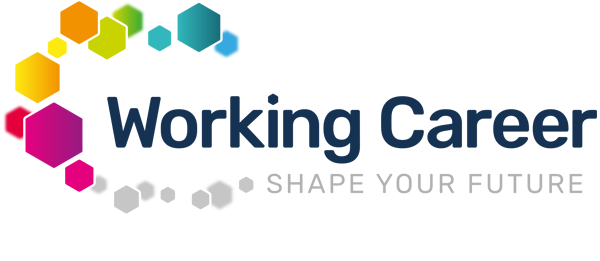Job Interview Tips: Navigating Different Interview Styles with Confidence
Have you got a job interview coming up and confused by the different types of interviews there are? Read on to find out more.
Navigating the landscape of job interviews can be daunting, especially with the myriad of formats and approaches companies use to assess candidates. Understanding these various interview types and preparing accordingly can significantly enhance your performance and confidence. This blog will guide you through the most common types of interviews, their nuances, and strategic tips to help you excel in each.
1. Traditional One-on-One Interviews
Traditional one-on-one interviews are the most common format, involving a conversation between you and a representative from the company, usually a hiring manager or a team member.
What they are: These interviews focus on your CV, experiences, skills, and how they align with the role's requirements. Questions can range from straightforward ("Tell me about yourself") to behavioural ("Describe a time when you faced a challenge at work").
Tips:
Research the company and interviewer: Understanding the company's values, culture, and recent developments can help tailor your answers to resonate with the interviewer.
Prepare your stories: Have a repertoire of experiences ready that showcase your skills and achievements. Use the STAR method (Situation, Task, Action, Result) to structure your responses.
2. Behavioral Interviews
Behavioral interviews delve into how you've handled various work situations in the past, based on the belief that past behavior predicts future performance. Behavioural interviews can be about your skills (known as Competency Interviews) or about your values.
What they are: You'll be asked to provide specific examples of how you demonstrated particular skills or responded to certain situations ("Tell me about a time you led a team").
Tips:
Study the Job and Person Specification: Identify the required competencies and values required for the role.
Reflect on your experiences: Identify key moments in your career where you've demonstrated the qualities the employer is looking for.
Be specific and detailed: Provide clear, concise, and detailed accounts of your experiences. Avoid vague or generic responses.
3. Panel Interviews
Panel interviews involve multiple interviewers from the company, often from different departments, interviewing you simultaneously.
What they are: This format allows various team members to assess you concurrently, saving time and providing a multi-perspective evaluation.
Tips:
Engage with each interviewer: Make eye contact and address each panel member, even if the question comes from one person. Acknowledge everyone's presence and contributions.
Prepare for varied questions: Since panel members may come from different departments, be ready for a wide range of questions, from technical to HR-related.
Communicate appropriately: Remember not to use acronyms or technical terms if your audience might not understand them.
4. Group Interviews
In group interviews, multiple candidates are interviewed together, often involving group activities or discussions.
What they are: Employers use this format to assess candidates' teamwork, leadership, and communication skills in a collaborative setting.
Tips:
Stand out, respectfully: Participate actively but don't dominate the conversation. Show your ability to listen, contribute, and encourage others.
Demonstrate teamwork: Highlight your ability to work collaboratively by building on others' ideas and offering constructive feedback.
5. Technical Interviews
Common in the tech industry, these interviews assess your technical skills and knowledge related to the job, such as coding abilities for software engineering roles.
What they are: You might be asked to solve problems on a whiteboard, complete coding tasks, or discuss technical concepts and projects you've worked on.
Tips:
Brush up on fundamentals: Review key concepts, algorithms, and problem-solving techniques related to your field.
Think aloud: When solving problems, explain your thought process, assumptions, and decisions along the way. This shows your analytical ability and how you approach challenges.
6. Case Interviews
Often used in consulting, management, and finance roles, case interviews require you to solve business problems on the spot.
What they are: You'll be presented with a business scenario and asked to analyze data, make assumptions, and propose solutions.
Tips:
Practice case studies: Familiarize yourself with common types of business problems and practice structuring your analysis and solutions.
Communicate your thought process: Clearly articulate your reasoning, the frameworks you're using, and your conclusions.
7. Video Interviews
Video interviews can be either live or pre-recorded job interviews. They have become increasingly popular, especially for remote positions or initial screening rounds.
What they are: Live video interviews mimic in-person interviews over a video call, while pre-recorded interviews involve answering prompted questions on camera without a live interviewer.
Tips:
Test your technology: Ensure your internet connection, camera, and microphone work well before the interview.
Mind your surroundings: Choose a quiet, well-lit setting with a neutral background. Pay attention to your body language and maintain eye contact with the camera.
8. Stress Interviews
Though less common, stress interviews are designed to see how you handle pressure by putting you in a stressful or uncomfortable situation.
What they are: You might face challenging questions, criticism, or long pauses to test your reaction to stress and adversity.
Tips:
Stay calm and professional: Breathe deeply, maintain composure, and don't take any harsh comments personally
If you feel you need support to improve your interview skills, why not arrange some interview coaching with Diana, an experienced interviewer and interview skills coach:
I am Diana Dawson, Founder of Working Career. As a Professional Career Coach, Interview Coach, Career Psychologist, Career Counsellor, Career Consultant, Executive Coach and Well-being at Work Coach, I work with organisations and individuals to help manage their careers.
I am an Accredited Master Coach with the Association for Coaching, a Coaching Psychologist and a Cognitive Behavioural Hypnotherapist with nearly 20 years of experience in the field.
I work with professional people from different sectors and backgrounds to cope and flourish at work. I also run Career Workshops and Wellbeing Workshops for organisations.
I can provide one-to-one career coaching in Edinburgh or Zoom sessions worldwide. I can provide Career Workshops at your organisation or remotely.





